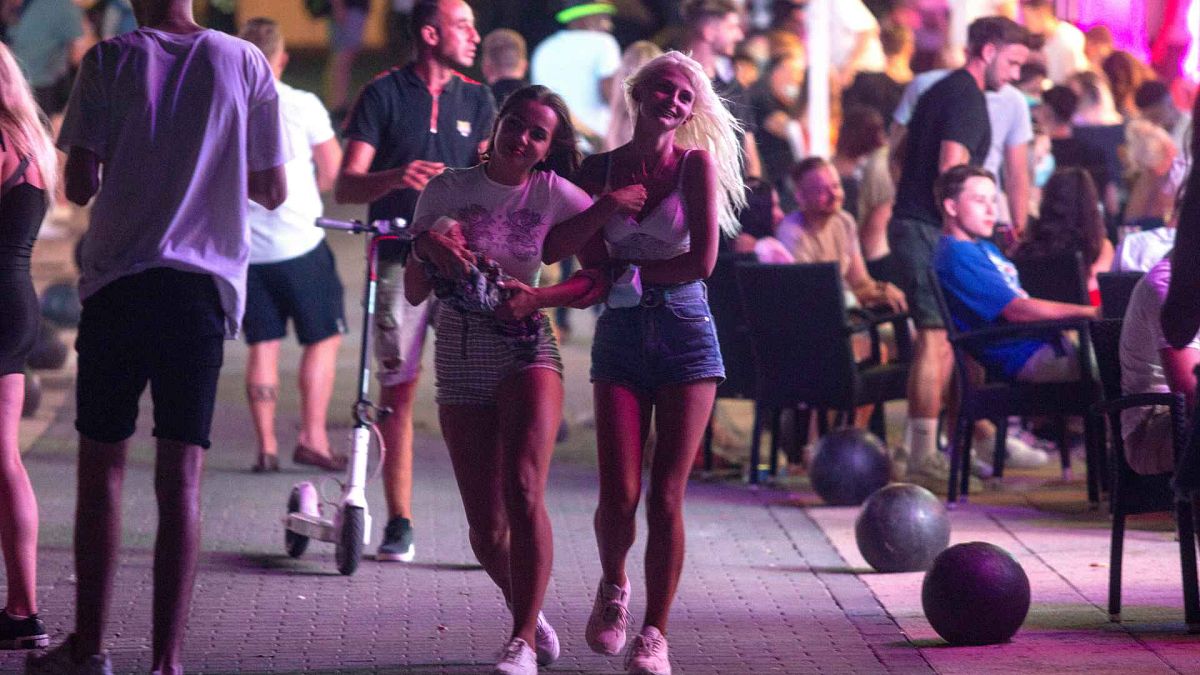Tourism is pricing locals out of being able to live on Ibiza, campaigners say.
Activists are taking to the streets this weekend to protest what they say are the downsides of tourism.
According to Prou Ibiza (‘Enough Ibiza’ in Catalan), nurses and police officers are having to live in cars and caravans because housing is unaffordable, and operations and cancer treatment have been delayed because doctors can't afford to live on the white isle.
The campaigners are calling on authorities to limit the number of tourist beds in Ibiza, one of Spain’s most popular resorts.
They will protest outside the white isle’s government offices today. Protests are also planned in Mallorca and Menorca over the weekend.
‘We are not against tourism itself’
Rafael Jimenez, a spokesperson for Prou Ibiza, is a local police officer from Ibiza. He moved to Aragon on the Spanish mainland after he had had enough of mass tourism.
“We are not against tourism itself. We have nothing against the people who come and respect our island,” he tells Euronews Travel.
“A side effect of mass tourism is that house prices are rising. Everyone feels that everything is collapsing. More restaurants require more workers but these workers require places to live and there are ten looking for every place.
There are nurses and police who live in caravans.”
Jimenez left Ibiza where he had lived for most of his life because, he said, he “could not take the atmosphere any more”.
“I have a house in Ibiza. But I couldn’t take it. We feel that tourism is taking public places. It is very expensive,” he added.
Spaniards are flying back and forth from Ibiza for work
Karla Andrade, 36, a teacher and mother who works in Ibiza, has moved to Palma in Mallorca. She flies back and forth to Ibiza rather than pay the high rent on the island.
She takes 40 flights a month, getting up at 6am to get the plane to work.
“I could not afford to live in Ibiza with the cost of housing,” she told Atena 3, a Spanish television channel.
Iván Fidalgo, of the Association of Civil Guards in the Balearic Islands, says the rising cost of housing is harming public services.
“They sell Ibiza as a first class resort, but it is not because it doesn’t even have the public services because there are not enough people to work in them,” he tells Euronews Travel.
The Balearic Islands, which last year attracted 17.8 million tourists, is the second most popular destination in Spain after the Canary Islands.
Tourism creates 200,000 jobs locally and annually generates €16 billion income or 45% of the islands’ Gross Domestic Product.
Growing discontent across Spain over mass tourism
Ibiza is not the first place in Spain to push back against the pressure of growing tourist numbers.
In Tenerife, one of the Canary Islands, locals are also said to have to sleep in cars and caves as housing gets snapped up by tourism organisations.
In the coastal city of Málaga, have plastered walls and doors with stickers saying things like “go f*cking home” (a tu puta casa) and “stinking of tourist” (apestando a turista).
In one of Menorca's most popular tourist destinations, bad behavious from tourists has led residents to restrict visiting hours.


